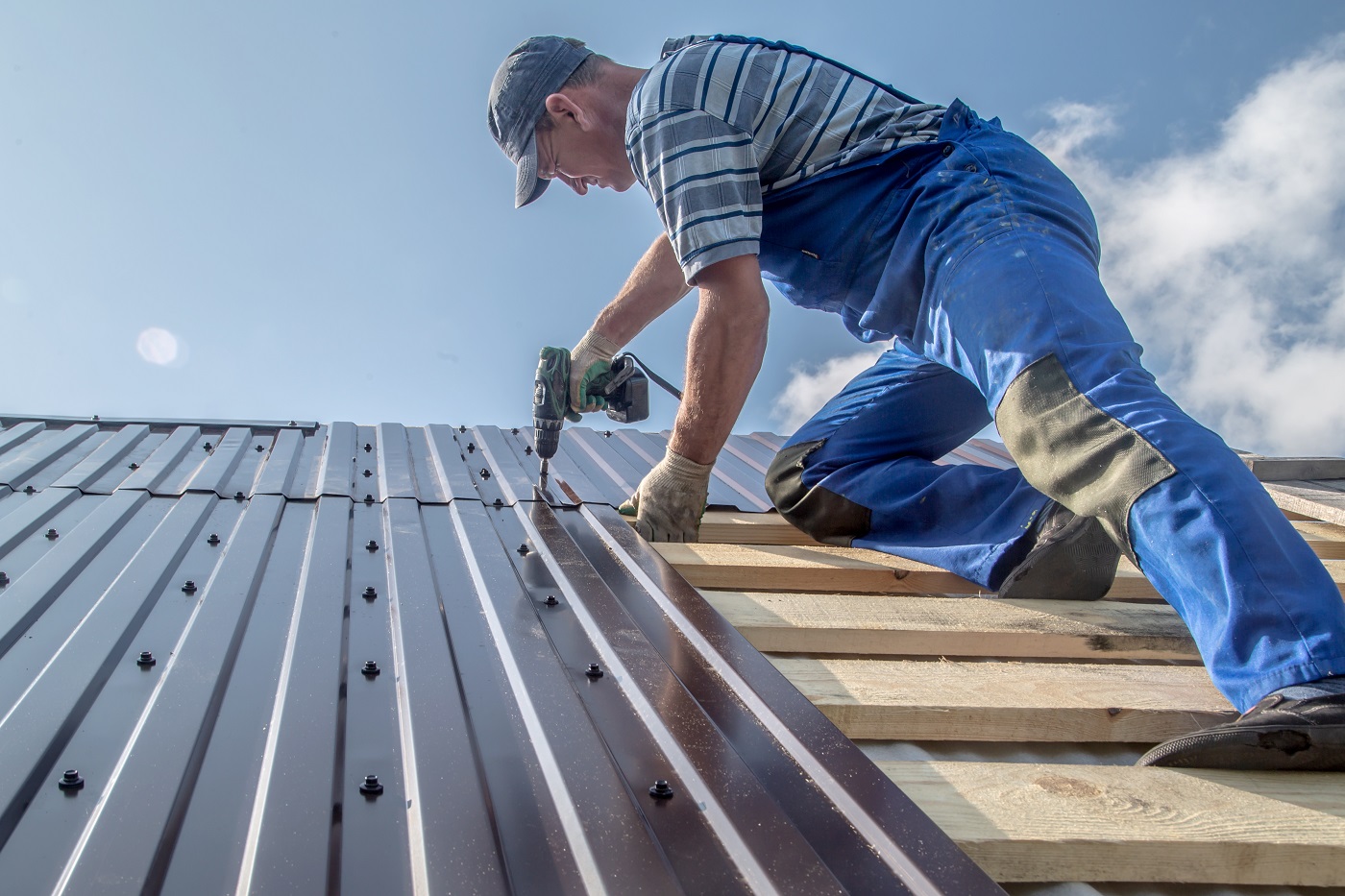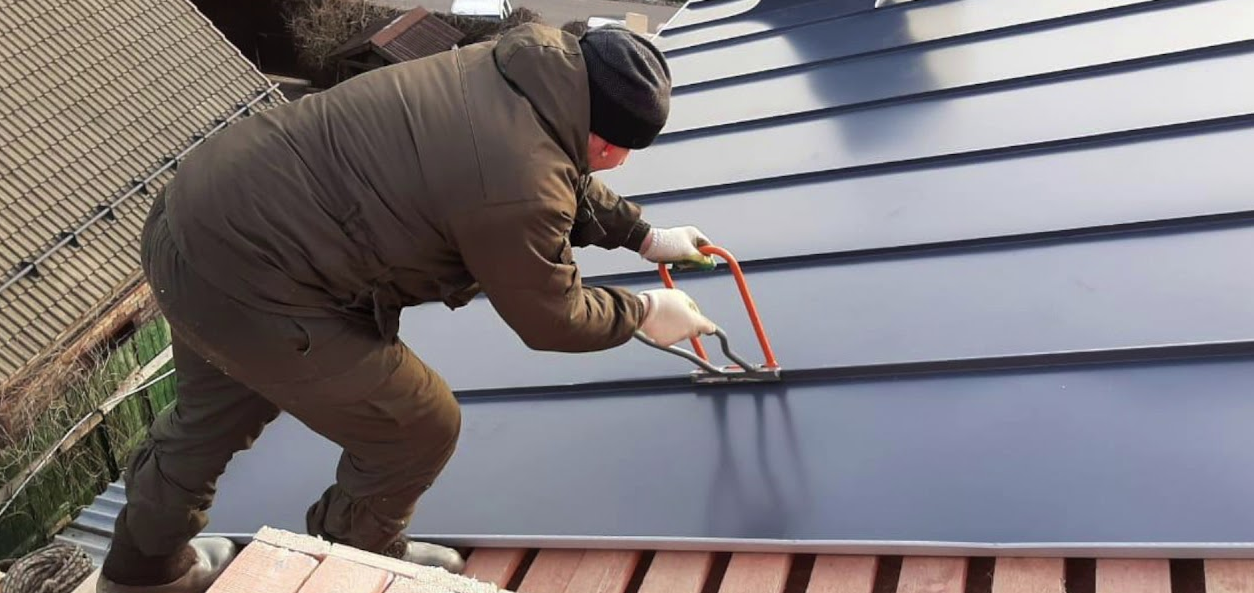Advantages of Metal Roofing
Metal roofs are far superior to conventional roofing in a variety of ways. For starters, these types of roofs can be laid on top of an existing roof without the need of removing the old roof thereby significantly cutting down of labor costs. Below is a detailed look into the other benefits that come with metal roofs.
- Durability: Thousands of roofs are re-installed every year with asphalt shingles. Manufactures and roofing contractors of this industry love it when customers use shingles repeatedly as it provides them with job security. Shingles have been a roofing staple for years but they have the major disadvantage of not lasting for long. They tend to crack and lose their quality with time more so in areas with extreme heat, cold, or wind. This in turn ends up costing users a lot of money on repairs and maintenance. With metal roofs, you will encounter no such problems, as one of the most important advantages of these roofs is their durability. In fact, your new metal roof may just be the last solution you will make for your home’s roof. With a life expectancy of up to fifty years or more, you can install your new metal roof and just forget about ordinary short-lived roofs.
- Energy Saving: One of the main issues that plagued metal roofs in the past is that they used to absorb too much of the sun’s heat, thus causing interior to be too hot. This in turn would cause electricity bills to skyrocket as it took more energy to keep the home cool with ventilation systems. But, thanks to technological advancements, metal roofs today have undergone major transformation from being high-energy consumers into becoming energy saving elements. These roofs have a specialized coating that reflects the sun’s heat away thereby keeping the home cool. This advantage is especially beneficial during extremely hot summers as it helps to decrease air conditioning bills significantly.
- Added Roofing Aesthetics: Aside from being highly functional and durable, metal roofs greatly improve on the aesthetics of a building. These roofs come in several stylish types that can make the home attain a desirable and sophisticated look. The great variety ensures that every homeowner can find something he or she wants in residential/commercial metal roofing.
- Strength and functionality: The strength of metal roofs enables them to not only withstand normal weather conditions but also hold up against extreme conditions. These roofs can be reliable in extremes of fire, hail, and wind, provided the installation went on properly. What ’s more, metal roofs are highly functional especially in areas that are prone to heavy snowfall. This roofing system has the advantage of allowing the snow to quickly slide off the roof thus preventing load accumulation and messy water problems that could occur when the snow melts.
- Structural protection: An unexpected advantage of metal roofs lies in how much they weigh. Conventional roofing material can weigh around 750 pounds per square foot while metal roofs range between 50-150 pounds per 100sq feet. This extremely lightweight helps contribute to the structural soundness of a building.

Types of Metal Roof Materials
The various materials used in metal roofing include:
- Aluminium: Is corrosion resistant and capable of lasting for more than 50 years. It is more expensive than steel but is very light and as such a favorite among homeowners. Aluminium metal roofs also have high natural reflectivity thereby increasing a building’s energy efficiency.
- Copper: Is the oldest metal roofing material and has a reputation of lasting for over 70 years. The long use of copper as a metal roofing material is because it offers low maintenance, durability, lightning protection, and sustainability benefits. Unlike other metal roofing materials, copper requires no additional finish or maintenance yet it stills protects the roof against corrosion.
- Steel: This alloy offers a great degree of durability and is a commonly used metal roofing material today. This material comes in a variety of types including galvanized, Galvalume®;, and stainless steel. Stainless steel metal roofs are available for harsh conditions and/or as a distinctive design element. They are usually roll-formed into standing seam profiles, although shingles are also available. The galvanized steel type is highly durable and offers a great deal of protection against corrosion. It consists of steel, which is coated with zinc and rolled into corrugated sheets. The Galvalume®; type consists of a blend of zinc, Aluminium, and silicon-coated steel. It is commonly used in standing seam metal roofing panels. Galvalume®; metal roofs are durable and ideal for both commercial and residential buildings.
- Tin: Tin roofing material consists of steel coated with tin. Tin is naturally corrosion-resistant and has the advantage of easily bonding with steel thereby resulting in a strong and durable coating. Tin metal roofs are the cheapest and are as effective as the other roofing materials. They are capable of standing up to storms and other harsh elements.

Cost of Metal Roofing
The cost of metal roofing depends on a variety of things including the material type and quality. Like most products, the better the quality of the roofing material, the more expensive it will be. Prices for these roofs are also based on the current value of metals, which keeps fluctuating. Therefore, the cost of installing a metal roof today will probably be different one year or two from now.
Is having a metal roof installed more expensive than a regular one? This is by far the most commonly asked question concerning metal roofing and probably the reason why most metal roofing skeptics shy away from this type of roofing system. The best answer to this question is yes and no. At the point of installation, you will have to pay more money for a metal roof than you would a regular one. However, this investment will pay for itself with time, hence making it the ideal choice for someone looking for a no nonsense roofing solution that lasts. The roof remains intact for 50 years without requiring too much maintenance and it will therefore save you from spending money on repairs. Metal roofs also prevent the need of having your roof replaced for several times during the life expectancy of you property. The given lifespan is half a century but with proper maintenance, metal roofs can go for longer than that without requiring replacement. This however is not the case with asphalt shingles as they only last for 17 years on average after which they will need replacement. The installation cost also proves to be a good return on investment as it helps you to save on utility bills.
